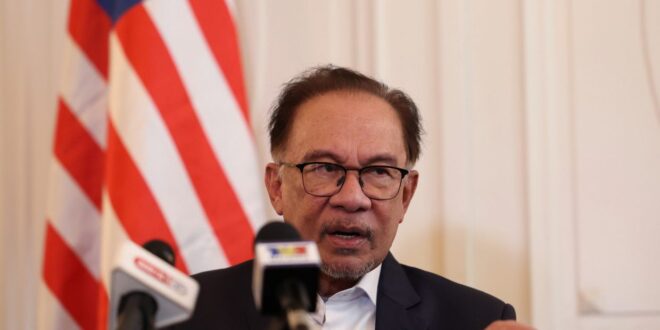KUALA LUMPUR: The Finance Ministry is finalising several policies linked to the High Value Goods Tax (HVGT) to ensure that the low income group is not affected, says Prime Minister Datuk Seri Anwar Ibrahim (pic).
He said this includes the types of items to be taxed and the thresholds.
“The luxury tax which is now known as the HVGT will be determined according to the type and category of items and the thresholds,” said Anwar.
“At the moment, the ministry is at the final stage of deciding several policies involving HVGT, among them are the types and the threshold values,” he added in a written Parliamentary answer to Roslan Hashim (PN- Kulim-Bandar Baru) on Tuesday (March 19).
Roslan had asked the government to state the details on HVGT and whether an imposition for jewelry at RM10,000 increments would affect individuals from the middle and low income groups.
In another written response, Anwar said that the impact of the devaluation of Ringgit is higher against imported goods.
He said this includes food items such as meat and dairy, seafood, vegetables and fruits.
“The government is aware that the B40 households are more vulnerable to the depreciation of Ringgit as they spend more on food items, which comprises 35.4% of the total expenditure,” said Anwar, who is also the Finance Minister.
He added that the situation has made the group more sensitive towards the exchange value of the currency due to higher import values.
“However, global commodity prices that have slightly stabilised have helped mitigate the effects of devaluation of Ringgit against inflation,” he said, responding to Datuk Larry Sng (PBM-Julau).
Sng had asked the ministry to explain the effects of devaluation of Ringgit towards the economic performance, especially to households and manufacturing sectors.
Anwar said Malaysia, as an exporting country, would generate translation gains leveraging on the depreciation of the currency.
“However, the government is aware that depreciation of the ringgit will affect the cost of doing business while lowering disposable income and savings for households,” he added.
Anwar added that the Payung Rahmah initiative will be able to assist the vulnerable groups and the government will continue to control prices and subsidise basic necessities such as food and fuel.
“To increase the sustainable income of households, the government is committed to generate more high skilled job opportunities as well as supporting high-productivity employment,” he added.
 BeritaKini.biz Berita Viral Terkini di Malaysia
BeritaKini.biz Berita Viral Terkini di Malaysia





